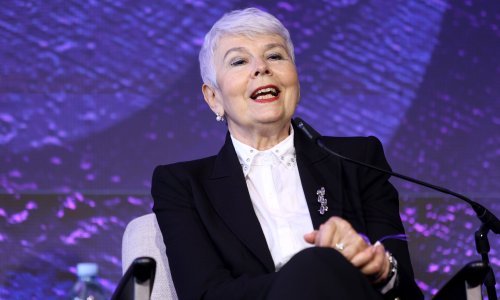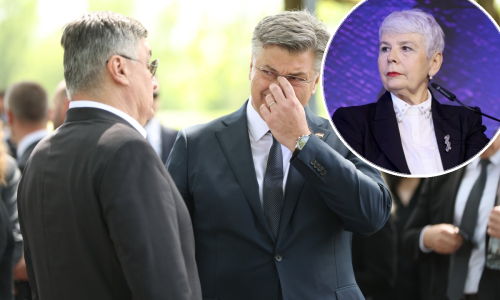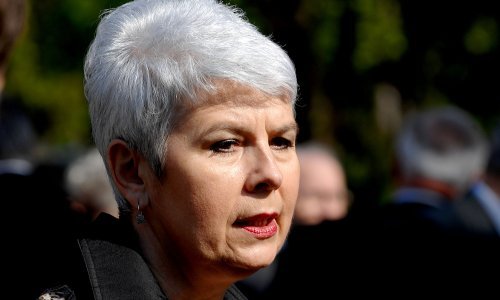The government is opposed to the arrival of the International Monetary Fund, because it believes that Croatia can deal with its problems on its own, Prime Minister Jadranka Kosor said in the northwestern town of Varazdin on Friday.
Kosor was asked by reporters to comment on the statement made earlier on Friday by Croatian National Bank (HNB) Governor Zeljko Rohatinski.
"I don't know what exactly Mr Rohatinski said, and especially what he meant by what he said, but the government's position is that we can deal with our own problems on our own and that we are against the IMF's arrival," Kosor said at a press conference after a ceremony marking the 40th anniversary of establishment of the Termoplin gas distribution company.
"I don't know if by mentioning the IMF the governor meant that the government perhaps should have reduced pensions, salaries and all welfare benefits (...), which are a major item in the budget, accounting for some 4 billion kuna. Our position is that those shouldn't have been reduced," Kosor said, adding that one of the first steps that would be taken by the IMF would be pay cuts in the public sector and reductions of all welfare benefits.
Kosor said that the coalition government had agreed that it would not be good to cut salaries and pensions in the revision of this year's budget because that would additionally affect people's living standards and purchasing power.
"We're open to debate, but it should be taken into account that industrial production and exports are growing and imports are falling, and that Croatia is slowly but surely emerging from the crisis," the PM said.
Addressing a conference of the Zagreb Stock Exchange on Friday, Rohatinski recalled that the HNB, when faced with a possible moratorium on external liabilities, responded by releasing one third of available foreign currency holdings to avoid approaching the IMF for assistance as an alternative.
"Both the government and I thought that it was not necessary and that we could recover from the crisis on our own, if we followed competent advice. In a similar situation I would do the same again, but I think it was a mistake then," he said.
The central bank governor said it was important to reduce the budget deficit by restructuring expenditure and to encourage investment, but not in infrastructure, but in export-oriented production.
"The response to the crisis was lukewarm, there were attempts to patch up holes without making essential changes," he said.


































